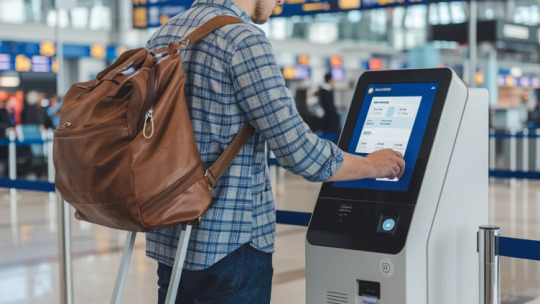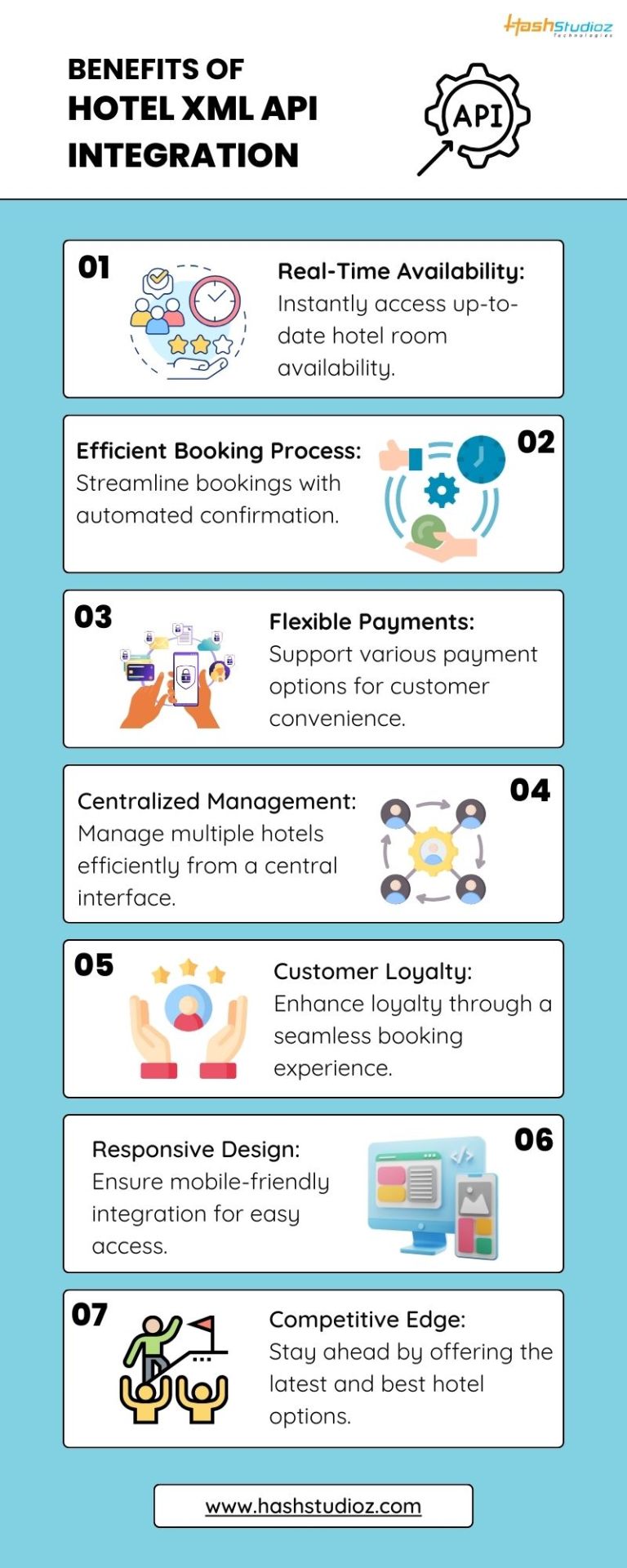#TechInTravel
Explore tagged Tumblr posts
Text
Eric Albuja Explores How Technology Makes Travel Smarter and Safer

Travel is an exciting part of life. Whether for business or pleasure, people travel more than ever before. However, with all the fun comes some risks and challenges. Fortunately, technology has changed the way we travel, making every trip smarter and safer. Eric Albuja, a leading expert in travel innovation, explores the key ways that new technology is improving the way we move around the world.
Smarter Travel with Technology
1. Easy Trip Planning
Gone are the days of flipping through guidebooks. Today, travelers use apps and websites to plan every part of their trip. Eric Albuja explains that platforms like Google Travel, TripIt, and Airbnb help people book flights, hotels, and experiences in one place. Travelers can also compare prices and read honest reviews, ensuring they choose the best options.
2. Personalized Experiences
“Technology allows us to personalize every trip,” says Albuja. Travel companies use AI and data to recommend activities, restaurants, and routes that fit each traveler’s preferences. Whether you enjoy hiking, fine dining, or museums, smart algorithms can tailor the trip just for you.
Staying Safer on the Road
3. Real-Time Updates
One of the most stressful parts of traveling is unexpected delays. Thanks to technology, travelers receive instant notifications about flight changes, traffic conditions, or weather warnings. “Smartphones keep travelers informed at all times,” explains Albuja. With live updates, travelers can change their plans quickly, avoiding delays or dangerous situations.
4. Contactless Payments
Handling cash or worrying about losing your wallet is no longer a concern. Eric Albuja points out that contactless payment options — like Apple Pay or Google Pay — make it easy and safe to pay for hotels, meals, and transportation. “You don’t need to exchange money or touch shared surfaces, making travel safer and more hygienic,” he says.
5. Location Tracking and Emergency Help
Technology also keeps travelers connected with their loved ones. Eric Albuja highlights how apps like WhatsApp and Find My Friends allow people to share their real-time location. In an emergency, this can help friends, family, and even rescue teams reach them faster.
Making Travel More Sustainable
6. Reducing Waste
Albuja also discusses the rise of eco-friendly tech solutions. Digital boarding passes, e-tickets, and online booking mean fewer printed papers. Many hotels and airlines have gone fully paperless. Even navigation apps help cut down on unnecessary travel, saving fuel and reducing pollution.
7. Supporting Sustainable Tourism
With apps like EcoBnb, travelers can now find eco-friendly places to stay and sustainable travel options. According to Albuja, these small choices add up and help preserve the beauty of travel destinations for future generations.
The Future of Travel Technology
As technology continues to grow, the future looks bright for smarter, safer travel. Eric Albuja predicts that tools like virtual reality will help people explore a destination before they even arrive. This will allow them to plan better and make informed choices about where to go.
Meanwhile, biometrics like facial recognition will speed up airport security checks and make flying less stressful. Smart luggage that tracks itself and AI-powered travel assistants will also become part of everyday travel.
Conclusion
Travel is all about new experiences and creating memories. Thanks to technology, as Eric Albuja points out, it is becoming easier and safer every year. Whether you are booking your trip, keeping up with flight updates, making payments, or sharing your location, technology gives you peace of mind.
As these tools continue to evolve, we can look forward to an even smoother, more enjoyable travel experience — one where the focus stays on the journey itself.
#TravelTech#SmartTravel#SafeTravel#EricAlbuja#TravelTips#TechInTravel#FutureOfTravel#TravelSmart#TravelInnovation#TravelSafe#ContactlessTravel#EcoTravel#TravelApps
0 notes
Text
🚌💻 The Online Bus Ticketing Service Market – Tech Meets Travel 🌍
If booking your bus ride with a few taps feels like magic, you're living in the future of transportation—and this Online Bus Ticketing Service Market report breaks it all down. From explosive growth potential to the hiccups along the road, it’s a full ride through the industry's evolution! 🚏📈
🔍 What’s in the Report? → Deep dive into market size, share & growth dynamics → Insights on tech innovations & strategic trends → Historical data + future forecasts → A close look at CAGR patterns & revenue drivers
🌐 Top Players Changing the Game:
FlixBus
GotoBus
Buspapa
Busbud
Megabus
Redbus
MakeMyTrip
Buupass
🦠 COVID-19 Impact? It’s Covered. From regional policies to company-level recovery plans, the report highlights how the market adapted during & post-pandemic.
📱 Service Types:
App Ordering
Web Ordering
🎯 Applications:
Tourism
Business
Others
📌 What Else You’ll Find: ✔️ Market share analysis by key players ✔️ Pricing & sales channel insights ✔️ Forecasts & investment strategies shaping the future
🔗 Explore the full report: businessresearchinsights.com/online-bus-ticketing
#OnlineBusBooking#TechInTravel#SmartMobility#BusTicketing#MarketInsights#Redbus#FlixBus#TravelTech#CAGRWatch#PostCOVIDRecovery#MarketTrends
0 notes
Text
Travel Smarter with AI-Powered Travel Recommendation Engine
Tired of generic travel suggestions? Step into the future of personalized travel planning with a travel recommendation engine that understands your wanderlust like never before.
In this blog, discover how AI is transforming the travel industry by: 🧠 Mapping traveler preferences and behaviors 🗺️ Curating tailored destination and activity recommendations 🚀 Boosting user engagement and booking rates for travel businesses
If you're a travel tech founder, OTA, or product leader in tourism, this guide is your roadmap to building smarter, more intuitive travel experiences.
#TravelRecommendationEngine#TravelTech#AIInTourism#PersonalizedTravel#SmartTravelSolutions#TravelIndustryTrends#UserExperience#DigitalTravelSolutions#KodyTechnolab#RecommendationSystems#TravelAI#TechInTravel#CustomerExperience
0 notes
Text

Online travel portal development by Tripkies Technology is transforming how travel businesses operate in the digital era. Tripkies specializes in building feature-rich, scalable, and user-friendly portals that simplify bookings and elevate the customer experience. From seamless flight and hotel integrations to secure payment systems and dynamic pricing, Tripkies empowers agencies and tour operators to grow faster and smarter in a competitive market.
#TripkiesTechnology#OnlineTravelPortal#TravelSolutions#TravelTech#PortalDevelopment#DigitalTravel#TravelIndustry#TechInTravel
0 notes
Text

In the fast-paced world of air travel, convenience and efficiency are essential. One of the most significant technological advancements in airports is the self-service kiosk,which allows travelers to print their boarding passes quickly and efficiently. These kiosks streamline the check-in process, reduce wait times and enhance the overall airport experience. By integrating advanced technology, airport kiosks have revolutionized the way travelers check in and prepare for their flights.
What Are Airport Kiosks? Airport kiosks are self-service stations equipped with touch-screen interfaces that assist travelers with various functions, such as check-in, printing boarding passes and even baggage tag printing. These kiosks play a crucial role in improving airport operations by reducing congestion at check-in counters and providing travelers with a more independent experience.
Understanding Airport Kiosk Technology
Airport kiosks operate using a combination of touch-screen technology, user-friendly software and seamless integration with airline databases. These kiosks connect to airline networks, allowing passengers to retrieve their booking details, select seats and print their boarding passes efficiently.
Types of Airport Kiosks Check-in Kiosks: Used for self-check-in and boarding pass printing.
Baggage-Tag Kiosks: Designed to print baggage tags for self-service bag drop.
Service Kiosks: Provide assistance for flight changes, rebookings and customer inquiries.
Benefits of Using Kiosks for Printing Boarding Passes Airport kiosks offer multiple advantages for travelers looking to streamline their check-in process, making their journey smoother and stress-free.
Time-Saving Option Kiosks significantly reduce wait times by allowing travelers to check in and print their boarding passes within minutes, avoiding long queues at airline counters.
Ease of Use for Travelers Designed with user-friendly interfaces, airport kiosks support multiple languages and simple navigation, making them accessible to a diverse range of travelers.
Independence and Control Self-service kiosks empower travelers by giving them control over their check-in process. They can select seats, print boarding passes and manage travel preferences without relying on airline staff.
How to Use Airport Kiosks for Printing Boarding Passes For travelers unfamiliar with self-service kiosks, here is a step-by-step guide to printing a boarding pass at an airport kiosk.
Locating the Kiosk Find a kiosk near your airline’s check-in counter. Airports typically have multiple kiosks in strategic locations to ensure accessibility.
Inputting Information Enter your details, such as your booking reference number, last name or scan your passport or frequent flyer card for quick identification.
Verifying Flight Details Confirm your flight details, including departure time and seat selection. Some kiosks allow travelers to modify seat preferences at this stage.
Printing the Boarding Pass Select the print option, collect your boarding pass and proceed to security or baggage drop-off if needed.
Common Issues and Troubleshooting Tips Despite their efficiency, kiosks may occasionally present challenges. Here are some common issues and solutions.
Unresponsive Touch Screen If the touch screen is unresponsive, try restarting the kiosk or seeking assistance from airport staff.
Error Messages or Failed Inputs Double-check your input details for errors. If problems persist, contact an airline representative for manual check-in assistance.
Printing Errors If the boarding pass does not print, try using another kiosk or visit the airline check-in counter for assistance.
Future of Airport Kiosks and Self-Service Travel Technology As technology continues to evolve, airport kiosks are expected to become even more advanced, integrating new features that enhance efficiency and security.
Integration with Biometrics Future kiosks may use biometric authentication, such as facial recognition or fingerprint scanning, to streamline check-in and security procedures.
Mobile App Compatibility Many airlines are working on seamless integration between kiosks and mobile apps, allowing travelers to check in and print their boarding passes using QR codes or digital wallets.
Sustainability and Eco-Friendly Innovations Airports and airlines are exploring sustainable kiosk solutions, including paperless boarding pass options and kiosks made from recyclable materials to reduce environmental impact.
Conclusion
Airport kiosks have transformed the travel experience by offering a fast, convenient, and user-friendly way to check in and print boarding passes. Their ability to reduce wait times, provide independence and integrate with modern technology makes them an essential part of today’s air travel landscape. As self-service travel technology continues to advance, kiosks will play an even greater role in shaping the future of hassle-free airport experiences. Travelers are encouraged to embrace these innovations to make their journeys smoother and more efficient.
#AirportTechnology#SelfServiceInnovation#TravelTech2025#FutureOfAirports#DigitalTransformation#PassengerExperience#SmartAirports#AviationTrends#TechInTravel#AutomationInAirports#SelfCheckIn#AirlineInnovation#TravelIndustry2025#CustomerExperience#AirportEfficiency#kiosk#kioskmachine#selfservicekiosk#airportkiosk#selfservicetechnology#checkinkiosk#airportcheckin#airport#airporttechnology#middleeast#gcccountries#uae#saudiarabia
0 notes
Text

Impact of AI and Automation in Vacation Rentals... To know more about the blog visit us :- https://bit.ly/4jN85VI #VacationRentals #AIinHospitality #Automation #ShortTermRentals #SmartHosting #AirbnbHosts #TechInTravel #AIforHosts #RentalMarket #HospitalityTech #TravelTrends #CompetitiveEdge #AIResearch #GuestExperience #rentalsuccess #vafion #keleno
#VacationRentals#AIinHospitality#Automation#ShortTermRentals#SmartHosting#AirbnbHosts#TechInTravel#AIforHosts#RentalMarket#HospitalityTech#TravelTrends#CompetitiveEdge#AIResearch#GuestExperience#rentalsuccess#vafion#keleno
0 notes
Text
The Future of Flight Booking: Trends to Watch
For cheap and best Travel Diaries - https://travelinternationals.com/
The flight booking industry is rapidly evolving with technology, consumer demands, and changing market dynamics. As airlines and travel platforms adapt to these transformations, several key trends are shaping the future of flight bookings. From AI-driven solutions to more personalized experiences, here are some trends to watch in the coming years.
One of the most significant trends is the integration of Artificial Intelligence (AI) and machine learning in flight booking platforms. AI-powered tools can help travelers find the best deals, predict price changes, and suggest personalized travel options based on past preferences. Airlines and travel agencies are already using AI to automate customer service, allowing travelers to book flights or receive assistance via chatbots, making the entire booking process smoother and more efficient.
Another trend to keep an eye on is the rise of voice-activated booking systems. With smart speakers like Amazon Alexa and Google Assistant becoming commonplace in homes, voice search is quickly emerging as a preferred method for booking flights. This hands-free experience offers convenience and speed, allowing users to find and book flights without having to manually search online. Travel companies are optimizing their platforms for voice queries to stay competitive in this space.
Additionally, sustainability has become a significant factor in travel decision-making. Many travelers are now prioritizing eco-friendly airlines and booking options that offer carbon offset programs. In response, flight booking platforms are integrating sustainability metrics into their search filters, enabling consumers to easily compare and choose greener options. This is not only a trend but a reflection of growing environmental consciousness within the travel industry.
The use of biometrics is another trend that is making its way into the flight booking and boarding process. Airports are adopting biometric technology for seamless and secure check-ins, allowing passengers to bypass long queues and reduce travel time. This trend is expected to extend to the flight booking process as well, enabling more streamlined and personalized experiences for travelers.
Finally, mobile-first strategies will continue to dominate the flight booking landscape. With the majority of travelers now using smartphones to plan and book their trips, travel agencies and airlines are prioritizing mobile optimization. Features such as one-click bookings, real-time notifications, and interactive flight maps will be central to mobile apps in the future.
As these trends continue to reshape the industry, travelers can expect a more convenient, personalized, and sustainable flight booking experience in the years to come.
#FutureOfFlightBooking#TravelTrends#FlightBooking#AIInTravel#VoiceActivatedBooking#SustainableTravel#BiometricsInTravel#MobileTravel#SmartTravel#TechInTravel
0 notes
Text
5 trends that will define how you travel in 2025
🌍 Ready to explore the future of travel? Discover the 5 Trends That Will Define How You Travel in 2025! From tech innovations to sustainable tourism, stay ahead of the curve and plan your adventures with these emerging trends. 🧳✨

Read more here 👉 https://thevirtualupdate.com/5-trends-that-will-define-how-you-travel-in-2025/
#TravelTrends2025#FutureOfTravel#SustainableTravel#TechInTravel#TravelGoals#AdventureAwaits#SmartTravel#TravelInspiration#TheVirtualUpdate
0 notes
Text
The Role of Technology in Modernizing UK Visa Applications
The UK visa application process has evolved significantly in recent years, embracing cutting-edge technology to enhance efficiency, accessibility, and user experience. For applicants, this modernization reduces stress and ensures a streamlined process. In this blog, we will explore how technology, including online applications, biometric systems, and eVisa platforms, is reshaping the landscape of UK visa services.
Streamlined Application with eVisa Systems
The introduction of eVisa systems has revolutionized the way individuals apply for UK visas. Unlike traditional paper-based applications, eVisas allow applicants to submit their details online, saving time and reducing errors. With automated systems in place, processing times are minimized, ensuring quicker decisions for applicants.
An UK eVisa provides the convenience of managing applications from the comfort of home. Applicants can track their visa status, upload documents, and even schedule appointments without visiting a physical center. This innovation not only benefits applicants but also helps immigration authorities process a higher volume of applications efficiently.
Advanced Biometrics for Enhanced Security
One of the most critical advancements in the visa process is the integration of biometric technology. A Biometrics Appointment is now a standard step in most visa applications, ensuring the identity of applicants is verified accurately. By collecting fingerprint scans and facial recognition data, the UK Home Office ensures a high level of security and minimizes the risk of identity fraud.
Biometric technology also accelerates the identification process at UK borders. Immigration officers can swiftly verify the identity of travelers, reducing waiting times and improving border security. This technological upgrade reflects the UK’s commitment to ensuring the safety of both applicants and its residents.
Online Portals for Enhanced Accessibility
The digitalization of the visa process extends beyond eVisa platforms. Comprehensive online portals now allow applicants to access guidelines, frequently asked questions, and real-time updates about their visa status. These portals are designed to simplify the process, enabling applicants to complete their forms correctly and reduce the chances of rejection.
Additionally, these digital tools ensure inclusivity by supporting multiple languages and providing easy-to-navigate interfaces. For applicants unfamiliar with technology, user-friendly designs and customer support services offer assistance throughout the application journey.
Artificial Intelligence in Decision Making
Artificial intelligence (AI) is playing an increasingly significant role in visa application assessments. AI-powered tools can swiftly analyze applications, flagging incomplete or inconsistent information. This helps streamline decision-making and ensures that applications are processed fairly and without bias.
Moreover, AI systems can predict processing times and provide applicants with accurate timelines, reducing anxiety during the waiting period. Such advancements highlight how technology is making the visa application process more transparent and predictable.
The Future of UK Visa Technology
The ongoing adoption of innovative technologies promises further advancements in the UK visa system. From digital ID verification to automated updates, the goal is to create an application process that is seamless and efficient. Initiatives like the UK eVisa system demonstrate how the integration of technology can transform visa services to meet the demands of a globalized world.
For applicants, these changes signify faster applications, improved accessibility, and greater transparency. For immigration authorities, it means enhanced efficiency and security. As technology continues to evolve, the UK is well-positioned to remain a leader in delivering efficient visa services globally.
#eVisa#UKVisa#BiometricsAppointment#UKeVisa#VisaApplication#TechInImmigration#ModernVisaSystem#DigitalVisa#VisaTech#UKImmigration#VisaProcessing#UKTravel#ImmigrationInnovation#VisaSecurity#TechInTravel#FutureOfVisas#UKImmigrationServices#VisaSimplified#DigitalTransformation#TravelTech#UKVisas
0 notes
Text
Modern Marvels: The Technological Transformation of RV Camping in the 21st Century
As the 21st century unfolds, the world of recreational vehicle (RV) camping is experiencing a remarkable transformation. Gone are the days when RV camping meant roughing it with minimal amenities. Today, innovative technologies are reshaping the RV experience, blending the allure of the open road with the comforts of modern living. This fusion has not only enhanced convenience but also expanded the appeal of RV camping to a new generation of adventurers.
The Rise of Smart RVs
One of the most significant advancements in RV camping is the integration of smart technology. Modern RVs are now equipped with sophisticated systems that allow travelers to control and monitor various functions remotely. Through intuitive mobile applications, users can adjust lighting to set the perfect ambiance, regulate temperature for optimal comfort, and even check security cameras to ensure safety—all from the palm of their hand.
These smart systems extend beyond basic controls. For instance, they can provide real-time diagnostics of the RV's mechanical components, alerting owners to maintenance needs before they become critical issues. This predictive maintenance capability can prevent breakdowns on the road, saving time and money. Additionally, some systems integrate with smart home devices, allowing seamless transition between home and RV environments.
Connectivity on the Go
In an increasingly digital world, staying connected while on the road has become a priority for many RV enthusiasts. High-speed internet access is now a standard expectation, facilitated by advances in satellite technology, mobile hotspots, and the expansion of 5G networks. Satellite internet providers have developed more affordable and reliable options specifically for mobile users, ensuring coverage even in remote locations.
This connectivity enables a range of activities. Remote work, often referred to as "digital nomadism," has become a viable lifestyle for those who wish to combine their professional life with travel. Streaming services and online gaming provide entertainment options for downtime, while social media allows travelers to share their adventures in real-time. Furthermore, connectivity enhances safety by enabling access to emergency services and real-time weather updates.
Energy Efficiency and Sustainability
Environmental consciousness has led to significant innovations in how RVs manage energy consumption. Solar panels have become increasingly popular, providing a renewable and sustainable way to power appliances and reduce reliance on generators or shore power. Flexible, lightweight solar panels can be mounted on the RV's roof without significantly impacting aerodynamics or weight.
Advancements in energy storage complement these renewable energy sources. Lithium-ion batteries, for example, offer greater energy density, longer lifespan, and faster charging times compared to traditional lead-acid batteries. Energy management systems intelligently distribute power where it's needed most, optimizing efficiency.
Some RV manufacturers are exploring hybrid or fully electric propulsion systems. While still in early stages, these technologies promise to reduce emissions and operating costs. Regenerative braking systems can capture energy that would otherwise be lost, further enhancing efficiency.
Advanced Navigation and Safety Features
Navigating a large RV presents unique challenges that differ from driving a standard vehicle. Modern RVs are equipped with advanced navigation systems that take into account the size and weight of the vehicle. These systems provide route planning that avoids low bridges, weight-restricted roads, and tight turns that could pose a problem for larger vehicles.
Safety features borrowed from the automotive industry have been adapted for RV use. Collision avoidance systems use sensors and cameras to detect potential hazards, alerting the driver or even taking corrective action. Adaptive cruise control maintains a safe following distance by adjusting speed automatically. Lane departure warnings and blind-spot monitoring enhance driver awareness, reducing the likelihood of accidents.
Rearview and surround-view cameras have become standard, aiding in parking and maneuvering in tight spaces. Some RVs offer heads-up displays that project important information onto the windshield, allowing drivers to keep their eyes on the road.
Innovative Interior Designs
The interior of RVs has undergone a significant transformation, prioritizing both form and function. Space-saving designs maximize the limited square footage. Multipurpose furniture, such as beds that convert into seating areas or tables that fold away, provides flexibility in how space is used.
High-quality materials and finishes give modern RVs a luxurious feel. Hardwood flooring, solid surface countertops, and stainless-steel appliances are now common. Advances in manufacturing have allowed for lighter materials without sacrificing durability, helping to reduce overall vehicle weight and improve fuel efficiency.
Slide-out sections have become a staple in many RV models. These extendable areas increase living space when the RV is parked, providing more room for dining, lounging, or sleeping. Some RVs feature multiple slide-outs, creating a spacious interior that rivals small apartments.
Climate control systems have also improved. Zoned heating and cooling allow for different temperature settings in various parts of the RV. Radiant floor heating provides warmth underfoot during cold weather, enhancing comfort.
Augmented Reality and Virtual Tours
The buying process for RVs has been enhanced through the use of augmented reality (AR) and virtual reality (VR) technologies. Prospective buyers can take virtual tours of RV models, customizing features and layouts to suit their preferences. This immersive experience helps consumers make informed decisions without the need to visit multiple dealerships.
On the road, AR applications can enrich the travel experience. By pointing a smartphone or tablet at a landmark, travelers can access historical information, reviews, and recommendations. Navigation apps with AR overlays can provide visual directions, making it easier to follow complex routes.
Community and the Sharing Economy
Technology has fostered a vibrant community among RV enthusiasts. Social media platforms, forums, and dedicated apps connect travelers, allowing them to share experiences, offer advice, and coordinate meetups. This sense of community enhances the social aspect of RV camping, providing opportunities for friendships and shared adventures.
The sharing economy has also made an impact on the RV industry. Peer-to-peer rental platforms allow RV owners to rent out their vehicles when not in use, providing additional income and making RV travel more accessible to those who may not wish to purchase an RV outright. Shared ownership models and subscription services offer flexible options for those seeking the RV experience without long-term commitment.
Challenges and Considerations
While the integration of technology brings numerous benefits, it also introduces challenges that must be addressed. The increased reliance on digital systems raises concerns about cybersecurity. RVs equipped with internet-connected devices could be vulnerable to hacking if not properly secured. Manufacturers and owners must prioritize cybersecurity measures to protect personal information and ensure the safe operation of vehicle systems.
Maintenance and upgrades of technological components require ongoing attention. Software updates are necessary to patch vulnerabilities and improve functionality. Owners may need to invest time and resources into keeping their systems up-to-date.
The initial cost of technologically advanced RVs can be significantly higher than traditional models. While the long-term benefits may offset these costs, affordability remains a concern for many consumers. Financing options and a robust secondary market can help mitigate this barrier.
The Future of RV Camping
Looking ahead, the RV industry is poised to continue its technological evolution. Autonomous driving technology is one of the most anticipated developments. Self-driving RVs could revolutionize the travel experience, allowing occupants to relax or engage in other activities while the vehicle navigates to the destination. While fully autonomous RVs may still be years away, incremental advancements in driver assistance systems pave the way.
Advancements in sustainable materials and construction techniques will further reduce the environmental impact of RVs. Lightweight composites and recycled materials can improve fuel efficiency and reduce waste. Integration with smart grids and renewable energy infrastructure may allow RVs to contribute to broader sustainability efforts.
Personalization and customization will likely become more prevalent, with modular designs that allow owners to configure their RVs to specific needs. Technology will continue to enhance the user experience, with artificial intelligence and machine learning providing personalized recommendations for destinations, activities, and maintenance schedules.
Conclusion
The technological transformation of RV camping in the 21st century has redefined what it means to take to the open road. By embracing innovation, RV enthusiasts can enjoy the freedom and adventure of travel without sacrificing the comforts of home. Technology has made RV camping more accessible, enjoyable, and sustainable. As the industry continues to evolve, RV camping will undoubtedly offer even more exciting opportunities for exploration and connection, appealing to both seasoned travelers and newcomers alike.
References
RVRentService.com - https://rvrentservice.com/the-evolution-of-rv-camping-in-the-21.html
RV Industry Association. RV Industry Trends and Statistics. Retrieved from https://www.rvia.org/
National Renewable Energy Laboratory. Renewable Energy Technologies for RVs. Retrieved from https://www.nrel.gov/
Winnebago Industries. Smart Technology in Modern RVs. Retrieved from https://www.winnebago.com/
Airstream. Innovations in RV Design. Retrieved from https://www.airstream.com/
RV Life Magazine. Articles on RV living and technology advancements. Retrieved from https://rvlife.com/
MotorHome Magazine. Coverage on RV safety and navigation technologies. Retrieved from https://www.motorhome.com/
Wired. Articles on autonomous vehicles and future technology trends. Retrieved from https://www.wired.com/
#RVCamping#TravelTechnology#SmartRVs#ModernCamping#DigitalNomads#RVTravel#ConnectedTravel#SustainableTravel#OutdoorAdventure#MobileLiving#RVLife#TravelInnovation#RoadTrip#RVCommunity#VanLife#TechInTravel#FutureOfTravel#RVIndustry#TravelTrends#RecreationalVehicles
0 notes
Text
#AIInnovations#Ixigo#TravelTech#BusinessGrowth#Efficiency#AlokeBajpai#TravelIndustry#TechInTravel#ArtificialIntelligence#TravelApps
0 notes
Text
Eric Albuja Shares 5 Ways Automation Is Redefining Luxury Travel
Step into the future of luxury travel with Eric Albuja. In this exclusive video, he shares five powerful ways automation is elevating high-end journeys — from AI-personalized itineraries to seamless, tech-driven hotel experiences. Discover how innovation is crafting smoother, smarter, and more indulgent adventures. Luxury isn’t just about where you go — it’s how effortlessly you get there.
#EricAlbuja#LuxuryTravel#TravelAutomation#SmartTravel#AIPoweredTravel#TechInTravel#FutureOfTravel#LuxuryLifestyle#TravelInnovation#AutomatedTravel
0 notes
Text
Ari Motel Shares How AI is Transforming Hospitality Services
youtube
Join us as we dive into the exciting ways AI is revolutionizing the hospitality industry! Discover how Ari Motel, a charming hotel off Interstate 20, is leveraging artificial intelligence to enhance guest experiences, streamline operations, and promote sustainability. Tune in to learn about personalized services, smart technologies, and future trends shaping the world of hospitality.
#AIInHospitality#SmartHotels#TechInTravel#HospitalityInnovation#AriMotel#FutureOfHotels#GuestExperience#HotelTech#SustainableTravel#TravelTrends#Youtube
0 notes
Text



What if AI could transform your travel business overnight? From automating bookings to boosting profits, AI is changing the game. Curious how?
Swipe to explore the benefits, then check out our blog for more details!
#AIinTravel#TravelTech#CustomerExperience#TravelInnovation#AIChatbots#TravelManagement#SmartTravelSolutions#AITransformation#TravelIndustryTrends#TechInTravel#FutureOfTravel#TravelEnthusiasts#TravelStartups#Entrepreneurs#TechnologyInnovators#ArtificialIntelligence#Travel
1 note
·
View note
Text
🌟 Revolutionizing Hospitality with AI 🌟
Artificial Intelligence is transforming the hospitality industry, enhancing guest experiences like never before! From personalized recommendations and seamless check-ins to 24/7 virtual assistance and efficient service delivery, AI is elevating every aspect of your stay. Imagine a world where your preferences are anticipated, and your comfort is prioritized with precision. AI-driven analytics also help hotels optimize operations, ensuring a smoother, more enjoyable experience for guests. Dive into the future of hospitality and see how AI is reshaping the way we travel and stay.
Read more:
0 notes
Text

"Explore seamless hotel booking experiences with our XML API integration. Real-time availability, diverse inventory, and automated pricing updates for an efficient and competitive edge in the travel industry."
#HotelBooking#TravelTech#APIIntegration#HospitalityTech#TravelIndustry#RealTimeBooking#DynamicPricing#MobileIntegration#CustomerExperience#HotelInventory#TechInTravel#SeamlessBooking#DigitalTransformation#GlobalTravel#OnlineReservations#XMLAPI#HotelManagement#TravelInnovation#BookingSolutions#CompetitiveAdvantage
0 notes